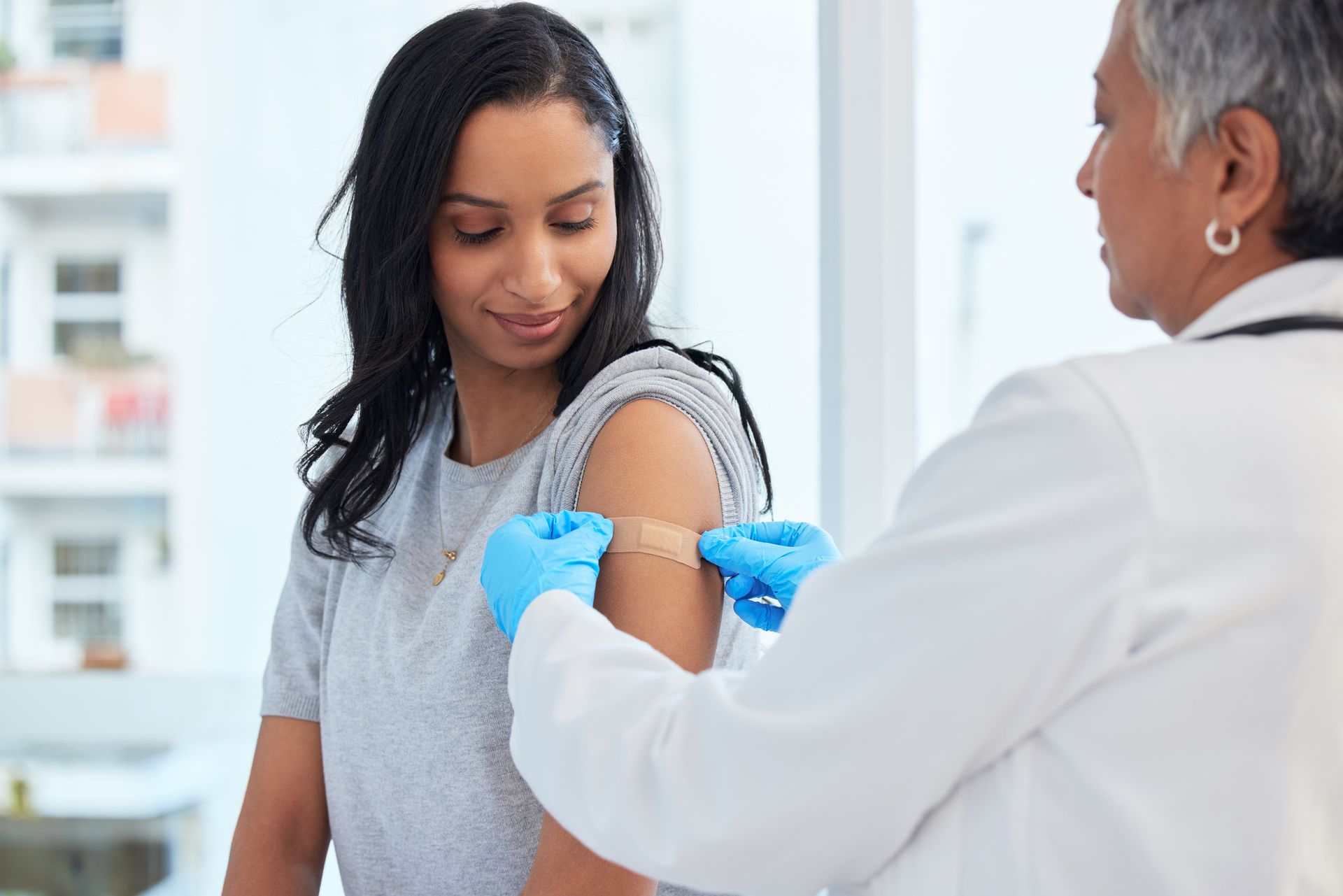When Should You Get a Flu Shot and Why Is It Important?

Do you have friends, family members or coworkers who have contracted the flu this winter? Now that it’s February and flu season is winding down, you might be wondering whether it's too late to get vaccinated or if it’s still worth it.
Optimal Timing for the Flu Shot
The Centers for Disease Control and Prevention (CDC) recommends receiving your flu vaccine in September or October.
Even in February, it's not too late to receive your flu shot. Flu activity can persist into the spring months, and vaccination later in the season can still provide valuable protection against circulating strains. If you haven't been vaccinated yet, consider doing so promptly to protect yourself, your family, friends and coworkers.
Understanding Flu Vaccine Types and Their Development
Influenza vaccines are modified each year to combat the most prevalent flu strains. The selection and formulation process involves global surveillance and sophisticated manufacturing techniques.
How Are Flu Vaccine Strains Selected?
Although we often talk about “the flu” as if it were a standard and predictable ailment, the virus that causes the condition is constantly evolving. The dominant strain of influenza this year may not be the dominant virus next year.
Twice each year, the World Health Organization (WHO) convenes experts to analyze global influenza data. They assess which virus strains are circulating and how they're evolving. Based on this analysis, the WHO recommends specific strains to be included in the upcoming season's vaccines. National health agencies, like the CDC and the Food and Drug Administration (FDA) in the U.S., then decide on the final composition for their regions.
This annual reformulation aims to match the vaccine to the most prevalent and virulent strains anticipated.
Types of Flu Vaccines
For the 2024 to 2025 season, all flu vaccines available in the United States are trivalent, or designed to protect against three flu viruses: two influenza A strains (H1N1 and H3N2) and one influenza B strain.
The primary types of flu vaccines include:
- Inactivated Influenza Vaccines (IIV): These vaccines contain viruses that have been killed and are administered via injection. They are suitable for individuals aged six months and older, including those with chronic health conditions.
- Live Attenuated Influenza Vaccine (LAIV):
This nasal spray vaccine contains live viruses that have been weakened. It's approved for healthy individuals aged 2 to 49 years who are not pregnant.
- Recombinant Influenza Vaccines (RIV): Produced using recombinant DNA technology, these vaccines do not require the use of the live virus or eggs, making them an alternative for those with egg allergies.
How Do Flu Vaccines Differ from Other Vaccines?
The influenza virus evolves rapidly. Unlike some vaccines that provide long-term immunity with one dose or a series of scheduled doses, flu vaccines should be updated annually to protect against the current dominant strains.
While many vaccines use inactivated pathogens or subunits, the flu vaccine's composition can vary, including live attenuated forms, depending on the type.
Flu Season Insights for Houston, Texas
In Houston, flu outbreaks can begin as early as October and last through May. The Houston Health Department encourages annual vaccination to prevent the flu and its complications.
You can find updated influenza tracking information on the Houston Health Department’s website if you’re interested in learning how our community is faring this flu season.
How to Avoid Contracting or Spreading the Flu
The best way to avoid the flu is to keep your distance from people who are sick and wash your hands often. Germs spread easily when you touch your face, so try to avoid rubbing your eyes, nose or mouth. Cleaning frequently touched surfaces like doorknobs and phones can also help cut down on exposure in shared spaces.
If you’re feeling under the weather, do everyone a favor and stay home until you’ve been fever-free for at least 24 hours without medication. Cover your mouth when you cough or sneeze and toss tissues right away. Getting a flu shot each year is still the most effective way to protect yourself and others, reducing both the risk of infection and the chances of spreading it.
It’s Not Too Late to Get Your Flu Shot in Houston
Receiving your flu shot is a proactive step toward protecting yourself and those around you from influenza. Even as the season advances, vaccination remains a vital tool in reducing flu-related illnesses and hospitalizations. If you haven't received your flu shot yet, you can visit one of our St. Hope Pharmacy locations for vaccination.


